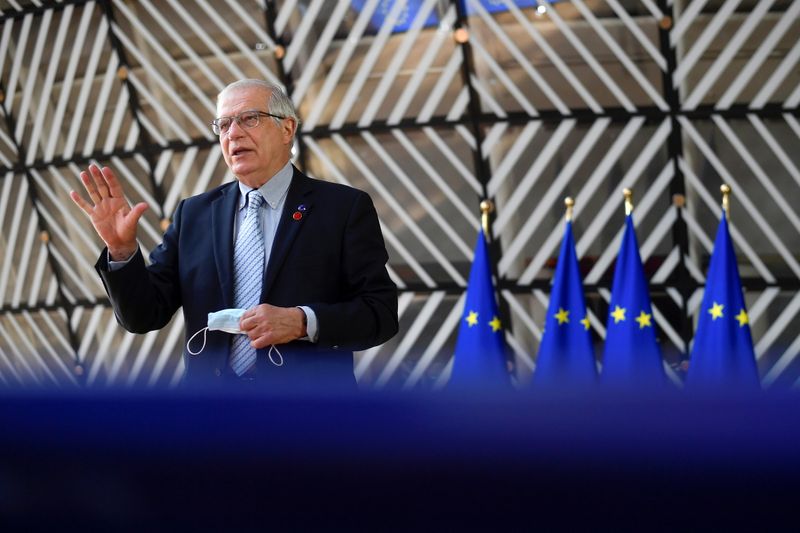LISBON (Reuters) – The European Union could have a military training mission in place in Mozambique within several months, the bloc’s foreign policy chief said on Friday, helping the southern African country tackle Islamist insurgents.
The problem is to find additional countries besides Portugal to supply troops, he said, speaking ahead of a summit of EU defence ministers in Lisbon.
At a press conference after the summit, Portuguese defence minister Joao Cravinho said: “No-one said they did not think it was a good idea”. But neither Borrell nor Cravinho specified whether any other countries had committed to participating, saying only that seven or eight had expressed willingness.
“First the mission must be formally approved, and then the countries who will participate will have the opportunity to declare what they have said privately,” Cravinho said.
The defence minister said he hoped the mission would be approved in June.
Sixty Portuguese soldiers sent to Mozambique in May are running a four-month programme training eleven Mozambican troops to counter the insurgency, share intelligence and use drones to track militants’ movements.
The EU’s mission will expand Portugal’s work to carry out training on a larger scale, Cravinho said, adding that Portugal was prepared to provide 50% of the manpower.
Countries unable to send troops may provide other forms of aid such as sattelite communication, he said.
Borrell has previously said 200-300 personnel could be sent by the end of the year.
Mozambique has been grappling with an insurgency in its northernmost province of Cabo Delgado since 2017 and violence has grown significantly in the past year.
Dozens of civilians were killed in Islamic State-linked attacks in the coastal town of Palma in April, and a $20 billion liquefied natural gas project run by oil giant Total was brought to a halt by the violence.
(Reporting by Victoria Waldersee in Lisbon and Sabine Siebold in Berlin; Editing by Alex Richardson and Mark Heinrich)
























